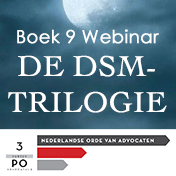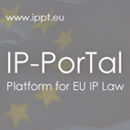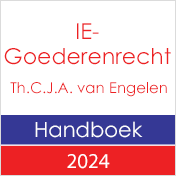EHRM: agenten hebben verzoekers niet uitgelokt om auteursrechtinbreuk te plegen
15-04-2015 Print this page
EHRM, 26 maart 2015, Volkov en Adamskiy v Rusland (appl. 7614/09 en 30863/10)
Strafrecht. Auteursrecht. Andrey Volkov en Alesandr Adamskiy zijn twee Russen die op het internet en in de krant computer reparatie diensten aanboden. In het kader van een undercoveroperatie hebben undercover politieagenten verzoekers benaderd met de vraag om software op hun computers te installeren. Hierna hebben verzoekers een aantal illegale computer programma’s op de computers van de agenten geïnstalleerd. Vervolgens zijn verzoekers veroordeeld tot voorwaardelijke gevangenisstraffen voor auteursrechtinbreuk. Voor het EHRM klagen verzoekers erover dat zij geen eerlijk proces hebben gehad, omdat de politie hun had uitgelokt om de auteursrechtinbreuk te plegen. Het EHRM oordeelt dat geen sprake was van uitlokking.
40. Turning to the facts of the present case, the Court observes that similarly to the applicant in the case of Kuzmickaja Mr Volkov and Mr Adamskiy were engaged in lawful business activity. They publicly advertised their computer-repair services, providing their respective telephone numbers. They thereby solicited customers in need of computer repairs and offered their technical expertise to the general public.
41. Meanwhile, the police received incriminating information against the applicants and, as such, came under an obligation to verify a criminal complaint. They called the applicants on their respective numbers and asked them to install some computer programmes. The applicants did not complain to the domestic courts that the police officers had specifically asked for unlicensed software or that they had exerted any pressure on the applicants at the time of the call or tried to pressure them into committing illegal acts. Moreover, from the records of the conversation between the applicants and the police officers in the course of the computer repairs it is clear that the applicants brought unlicensed software for installation on their own initiative, without unlawful incitement by the undercover agents (see paragraphs 7 and 13 above).
43. However, Mr Volkov admitted in court that after the order had been placed he had bought compact discs with counterfeit software on them for installation. Mr Adamskiy acknowledged that soon after the call he had downloaded counterfeit copies of the required programmes from the Internet. The applicants both promptly found unlicensed software and installed it on V’s and M’s computers the next day. Neither of the applicants indicated in the domestic proceedings that V and M had specifically asked them to install unlicensed software. Mr Adamskiy also claimed that he had acted unlawfully because he had been in need of money at the time. However, nothing in the case materials suggests that the police were aware of Mr Adamskiy’s financial situation and that they used it to incite him to commit a crime. Moreover, in the course of the computer repairs both applicants openly informed the undercover agents that the software had been counterfeit and that it would have been much more expensive to install licensed software (see paragraphs 7 and 13 above).
44. […] Mr Volkov and Mr Adamskiy appear to have shown pre-existing criminal intent and have committed the criminal offences without active intervention on the part of police.
45. Therefore, under these circumstances, the Court sees no reason to depart from the finding on an agent provocateur complaint which it made in the case of Kuzmickaja (cited above). The police’s conduct in the present case does not appear to have been unlawful or arbitrary given their obligation to verify criminal complaints, whereas the applicants chose of their own free will to act illegally.
Lees het arrest hier.


























































